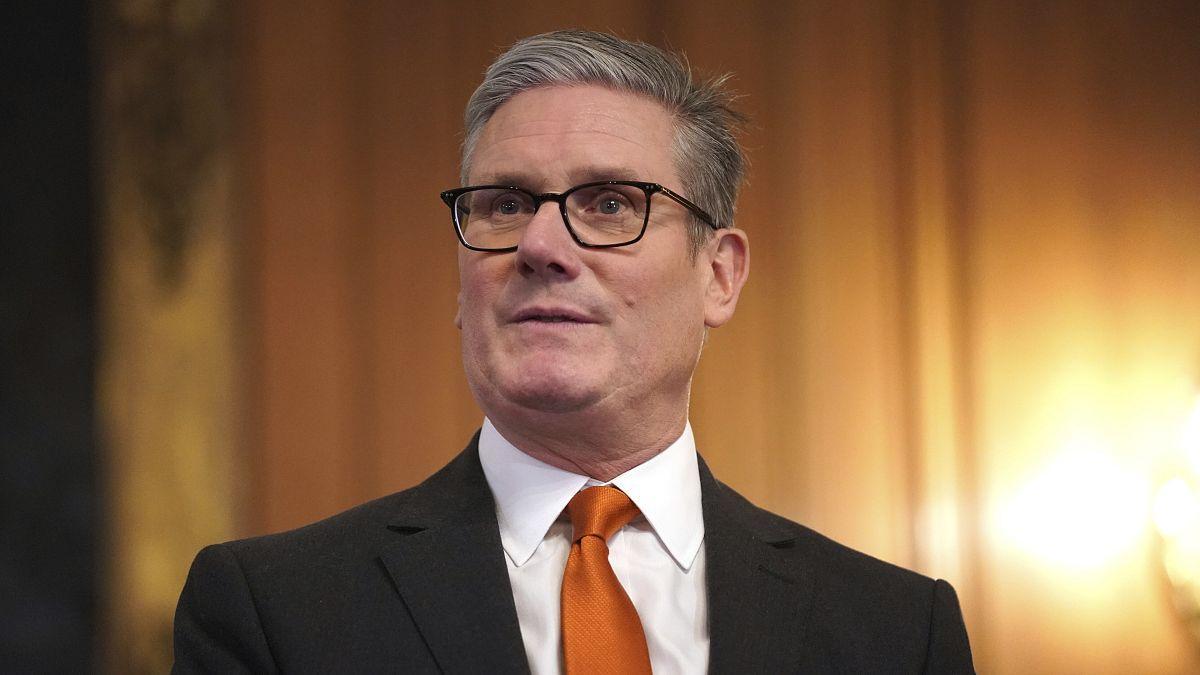Starmer’s Sweeping Cabinet Shake-Up: Who’s In, Who’s Out as UK Labour Government Reshuffles Top Team
In one of the most consequential reshuffles of his administration to date, UK Prime Minister Keir Starmer has restructured both the senior Cabinet and junior ministerial ranks, setting the tone for the next phase of his government amid mounting political scrutiny and policy pressure.
The overhaul follows the high-profile resignation of Deputy Prime Minister Angela Rayner over tax matters, a departure that triggered a recalibration of the Labour leadership’s top bench.
 |
| File Photo Source: Euro News |
The high-profile move puts her at the forefront of Britain’s international diplomacy at a critical moment, particularly as tensions in Europe and the Middle East remain volatile.
Taking over Cooper’s former role, Shabana Mahmood becomes the new Home Secretary, responsible for immigration and policing--a department already in sharp focus due to pressures surrounding small boat crossings, asylum accommodation, and rising deportation backlogs.
Junior Ministerial Appointments
A significant number of changes have also been made across junior ministerial positions. Former Match.com executive Jason Stockwood joins the Department for Business and Trade, bringing a private sector background to an area pivotal to the UK’s post-Brexit economic strategy.
Other notable moves include:
-
Ian Murray becomes a joint minister across Culture, Media and Sport and Science, Innovation and Technology.
-
Sarah Jones returns to government as Policing Minister.
-
Mike Tapp and Louise Jones, both from Labour’s 2024 intake, have secured posts in the Home Office and Ministry of Defence, respectively.
-
Baroness Levitt, a close legal adviser to Starmer during his prosecutorial days, has become a Justice Minister.
-
Seema Malhotra is now Parliamentary Under-Secretary of State in the Foreign Office, while retaining her equalities portfolio.
-
Dr Zubir Ahmed, a newly elected MP, joins the Health Department.
-
Georgia Gould becomes Minister of State in the Department for Education.
Meanwhile, several MPs exited government roles entirely, including Abena Oppong-Asare, Catherine West, and Lord Ponsonby of Shulbrede.
Sackings and Controversy
The reshuffle was not without its friction. Daniel Zeichner, the now-former Farming Minister, was dismissed in what is seen as a reaction to discontent over inheritance tax reforms for family farms.
He was replaced by Dame Angela Eagle, who previously handled border security.
Another ousted figure, reportedly furious about being removed, told the Daily Mail, “I’m going to f*** him up,” highlighting internal unrest within party ranks.
Another unnamed minister added, “There’s going to be carnage. Everyone’s going to be stabbing everyone else in the back.”
Former Conservative Culture Secretary Nadine Dorries also entered the fray, not as a Labour critic, but as a defector.
She announced her move to Reform UK, praising Nigel Farage as the only leader with the “answers and will” to deliver for Britain, while declaring the Conservative Party “dead”.
A Reshuffle Amid Crisis or Confidence?
The reshuffle unfolded just as Labour faced growing scrutiny from both domestic critics and international partners. Work and Pensions Secretary Pat McFadden pushed back against claims of disarray, asserting that Starmer now has “the strongest team” yet.
Starmer’s office insisted that the changes reflect strategic long-term planning rather than panic or political fracture.
The reshuffle’s implications stretch beyond Westminster. As Starmer seeks to advance his legislative agenda--ranging from employment rights to education reform--his new team is expected to deliver both policy continuity and refreshed energy.
Among those stepping down quietly was junior minister Justin Madders, who expressed disappointment at not seeing the Employment Rights Bill through to Royal Assent but pledged to support it as a backbencher.
Diplomatic Signals
On the foreign policy front, newly appointed Foreign Secretary Yvette Cooper made her first official call to Ukrainian Foreign Minister Andrii Sybiha within hours of her appointment, reaffirming the UK's “unwavering” support for Ukraine.
The move signaled that, despite domestic reshuffling, Britain’s international priorities remain consistent under Labour’s leadership.
